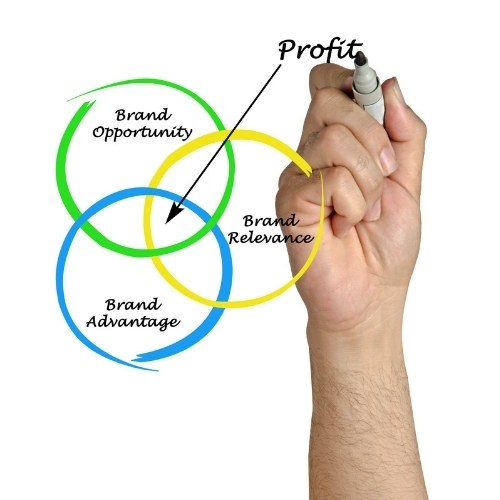
How brands affects in today’s life
While I sit in my room and observe, I notice that a lot of things are branded, my bag is
from reebok, face cream from Lakme and bedsheet from home center. When I ask
myself why I bought this particular brand, I don’t get any specific answers. Probably I
liked the style of my bag and the face cream suits my skin type.
When one of my friends bought a Rs. 25000 shoes from a renowned brand, I asked him
“What’s so special about this ‘high maintenance’ shoe? He replied things like “It has
memory foam; it remembers your pressure points and relaxes your muscles” and “It
doesn’t even feel like I am wearing anything because it is so damn comfortable”. I
handed him my shoes (not branded) and ask him to wear, his face was full of confusing
expressions because it provided the same comfortability and same grip at a relatively
cheaper price. I smirked and said “Hahaha, you wasted your Rs.25000” to which he
replied “Oh! You don’t know that they are branded” and the conversation ended there.
Brands have influenced our lives so much that amount of money doesn’t matter in front
of the brand name.
Many people believe that brands have started developing from the past few years, but
little do they know that this concept has remained with us since the 11th century.
“The word brand dates back to Old Norse, the ancient North Germanic
language. Brand originally referred to a piece of burning wood. Back in 11th
century people used to brand their livestock in order to differentiate. By the
seventeenth century, it referred to a mark of ownership made by branding.”
From my experiences and observations people tend to buy products they feel attached
to. When I say people have a certain emotional attachment towards a particular brand, it
might feel a bit weird, like how? Let us try to understand it with the following example.
“Many companies, let’s say Company X, have started manufacturing a lot of crop
tops because of their popularity among young girls, they produce so many styles of
crop tops that they don’t have much variety of normal tops. On the other hand,
there is Company Y which produces large number of normal tops. For a person who
doesn’t feel comfortable in crop tops, they might have an emotional attachment
towards company Y. It is as if the company is saying “I believe what you believe,
our thinking is same; you are not alone”
Product differentiation and competitive advantage are not the only requirements for a
company to succeed. It is equally important for the company to produce emotional
connection with their customers so that they can increase their customer base and earn
profits. Why a person doesn’t buy a shirt that is ill-fitted and rather buys a shirt which
fits them perfectly? Because it is as if it has been specially designed for them. It is
important for the customer to feel special which can only be attained by developing
emotional connection.
Not many can afford fancy brands they choose Quality and Comfortability along with
something that goes easy on their pockets. According to a survey by a website in the
year 2018, 63% of People preferred buying unbranded Products if they were of good
quality over branded products.
Ever since humanity began, people traded one thing for the other, the reason behind
this was to feed oneself in earlier times, but as the society has developed and economy
has grown, people tend to exchange things in order to get satisfaction and joy. People
exchange their old phone with a new one because of the satisfaction that they get.
People have started associating status with brands. People think more branded clothes
you wear; more modern your outlook is and more is your status and you are respected
more in the society.
“What is the difference between a Rs. 500 watch and a Rs. 50,000 Rolex watch?
Their function is the same – to show time. It is how we feel about the brand and
more importantly how do we feel about ourselves after wearing it which varies
tremendously in both the cases.”
And this is why brands have the power that they possess.
Brand is also a promise that is made by the company with their customers, the promise
is of quality, consistency and continuity. Why is one rice brand preferred over the other
one? It is because of the promise that the brand has made to its customers.
It is true when we say that human beings have a tendency of assuming oneself as
special, superior and different. Even speaking English has become a brand nowadays.
We pay less attention and respect to a person who doesn’t know English or speaks bad
English and are often mesmerized by people who speak fluent and heave rock sized
vocabulary, despite of the fact that they are making sense or not.
Ultimately, branding and psychology also goes hand in hand. Big companies hire
psychologists to attract more and more people. Jewelry shops are very skeptical about
the light that they place in their showroom because they believe that the showroom
should be as lustrous as the diamond inside the showroom, all this is believed to attract
people. Even a roadside apple vendor puts a red plastic bag in front of the LED light so
that the apples look as red as possible. Our mind gets fooled by these little tricks and
we buy products. This is exactly what a brand does to your brain, by embedding its
name in your mind, it becomes easier to cash out money from you.
“A brand for a company is like a reputation for a customer” – Jeff Bezos



